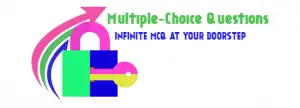Hello readers! Here, I am going to display some important Multiple-Choice Questions on Behavioural Science. These MCQ Questions or objective-type questions are taken from the syllabus of the diploma course on Mental Health, Advance Counselling, and Psychotherapy. Here, you will also get short questions on Behavioural Science.
Further, you may download this MCQ sheet in PDF format by clicking on the PDF Downloadable button that is located at the bottom of this page.
Now without wasting your time, let us start with the Multiple-Choice Questions or Objective Type Questions on Behavioural Science.

MCQ Questions on Behavioural Science
- _ behavior is observable by other people.
- Overt
- Covert
- None of these
Ans: (1)
- _ behavior is observable only by the behaving people themselves.
- Overt
- Covert
- None of these
Ans: (2)
- _ is/are the root cause/causes of behavior differences
- Differences in family patterns
- Impairment / disabilities
- Environmental factors
- All of the above
Ans: (4)
- Inability to reach goals is the _ aspect of maladaptive behavior.
- Maladaptive to one’s self
- Maladaptive to the society
- Both of the above
- None of these
Ans: (1)
- Which of the following is Instrumental conditioning?
- Operant conditioning
- Behavior followed by a reward
- Behavior that is unrewarded
- Both (1) & (2)
Ans: (4)
- Who introduced the classical conditioning model?
- Pavlov
- B.F. Skinner
- None of these
Ans: (1)
- Who introduced the Operant conditioning model?
- Pavlov
- B.F. Skinner
- None of these
Ans: (2)
- The total duration of behavior therapy is usually _weeks.
- 1-3
- 4-6
- 6-8
- 8-10
Ans: (3)
- Some people smoke when they feel stressed. Here, smoking is the_.
- Antecedent
- Behavior
- Consequences
- None of these
Ans: (2)
- In the above question, feeling stressed is the _.
- Antecedent
- Behavior
- Consequences
- None of these
Ans: (1)
- In the above question, the sense of relief after smoking is the_.
- Antecedent
- Behavior
- Consequences
- None of these
Ans: (3)
- The essence of _ conditioning is the concept of –“Pay off”.
- Instrumental
- Classical
- Operant
- Both (1) and (3)
Ans: (4)
- When you feel lonely, you eat junk food. Which of the sequence is correct?
The Antecedents, Behaviour, and Consequences are:
- Eating, feeling stressed, feeling relaxed
- Feeling stressed, feeling relaxed, eating
- Eating, feeling relaxed, feeling stressed
- Feeling stressed, Eating, feeling relaxed
Ans: (4)
- In a classroom, the teacher asked a boy who was shouting in the class and disturbing others to stand up on the bench for the entire period. This technique is known as:
- Time-out
- Pay-off
- Shaping
- Token-economy
Ans: (1)
- In Nila’s house, whenever she rings the bell, her pet dog comes to her and takes the food. At present, Nila is out of the station. Nobody rings the bell and gradually the dog stops coming in front of the kitchen. This technique is known as:
- Time-out
- Pay-off
- Shaping
- Token-economy
Ans: (2)
- In a training institute, there were some misbehaved boys. The professor of the institute set some rules to correct their behavior. They never got up early in the morning. So the professor decided to correct this behavior first and told them among these boys who would get up early and go for a morning walk, would get chicken soup for the breakfast. When all the boys habituated to getting up early and going for a morning walk, the professor took another step. The professor said-“ If you be attentive in all the 3 classes held in the first half, then you will be offered one glass of cold drinks after lunch”. In this way, the professor finally corrected them. This technique is known as:
- Time-out
- Pay-off
- Shaping
- Token-economy
Ans: (3)
- Sirhan is a very naughty boy. He did not write the notes that the teacher told him to write. So, Sirhan’s mother told him that if he wrote the notes, he would get Rs 20 so that Sirhan could buy something from the Canteen. Sirhan was very happy hearing this and started writing the notes and took Rs.20 from his mother daily. This technique is known as:
- Time-out
- Pay-off
- Shaping
- Token-economy
Ans: (4)
- Systematic desensitization is developed by :
- Dr. Schultz
- Thomas Stampfl
- Wolpe
- None of these
Ans: (3)
- Flooding was invented by:
- Dr. Schultz
- Thomas Stampfl
- Wolpe
- None of these
Ans: (2)
- Autogenic training has been developed by:
- Dr. Schultz
- Thomas Stampfl
- Wolpe
- Edmund Jacobson
Ans: (1)
- Deep muscle relaxation training was developed by:
- Dr. Schultz
- Thomas Stampfl
- Wolpe
- Edmund Jacobson
Ans: (4)
- In which of the following relaxation method, the patients are instructed to imagine themselves in a place with pleasant relaxed memories?
- Jacobson progressive muscle relaxation
- Meditation
- Yoga
- Mental imaginary
Ans: (4)
- Which technique you can use as an aid to meditation?
- Jacobson muscle relaxation technique
- Systematic desensitization
- Autogenic training
- Yoga
Ans: (3)
- Who discovered that during hypnosis, the patient experiences warmth and heaviness?
- Dr. Schultz
- Thomas Stampfl
- Wolpe
- Edmund Jacobson
Ans: (1)
- In which of the following technique Coueism method is followed?
- Jacobson muscle relaxation technique
- Systematic desensitization
- Autogenic training
- Yoga
Ans: (3)
- B.F Skinner’s entire system is based on:
- Operant Conditioning
- Classical conditioning
- Observational learning
- Hypnosis
Ans: (1)
- A behavior followed by a reinforcing stimulus results in a/an _ probability of that behavior occurring in the future.
- Increased
- Decreased
- Remain same
- None of these
Ans: (1)
- A behaviour no longer followed by a reinforcing stimulus results in a/an _ probability of that behaviour occurring in the future.
- Increased
- Decreased
- Remain same
- None of these
Ans: (2)
- In which of the therapy, are drugs used for treating alcoholism?
- Flooding
- Muscle relaxation technique
- Aversion therapy
- None of these
Ans: (3)
- Flooding works on:
- Instrumental conditioning
- Operant conditioning
- Classical conditioning
- None of the above
Ans: (3)
- Rik, 8 years old kid did not drink water at all. His mother told him that if he did not drink water, foods would not be digested, his stomach would give pain, and then he would be admitted to the hospital. He had to stay 2-3 nights without his mother and had to take many injections. Hearing this, Rik imagined the things and then started drinking water. Now, he drinks water as per the requirement of this age. Which technique, did Rik’s mother follow?
- Flooding
- Autogenic training
- Therapeutic graded exposure
- Aversion therapy
Ans: (4)
- 15 minutes of the training can make up for a sleepless night. Which training is it?
- Flooding
- Autogenic training
- Therapeutic graded exposure
- Aversion therapy
Ans: (2)
- Seeing others doing, the client thinks that s/he can do it too. This technique is known as:
- Flooding
- Autogenic training
- Modeling technique
- Aversion therapy
Ans: (3)
- Stammering, thumb sucking, and nail-biting can be treated by:
- Aversion therapy
- Autogenic training
- Modeling technique
- Negative practice
Ans: (4)
- The negative practice name is given by:
- Dunlap
- Wolpe
- David Premack
- None of these
Ans: (1)
Short Questions on Behavioural Science
- How many types of behaviors are there? Explain those.
Ans: There are mainly two types of behaviors. These are:
Overt behavior and covert behavior.
Overt behavior is observable by other people whereas covert behavior is observable by behaving people themselves. Abnormal thinking is an example of overt behavior.
- What are the root causes of Behavioural differences?
Ans: The root causes of behavioral differences are: Individual differences, differences in family patterns, impairment/disabilities, environmental factors, psychological factors, etc.
- What is behavior therapy?
Ans: Behaviour therapy is one type of Psychotherapy in which undesirable behaviors are removed or changed into desirable behavior.
- How many different types of Punishment are there? Name those.
Ans: There are three different types of punishment. They are:
Physical punishment like an electric shock – presentation of aversive stimuli
Response cost (example- penalty, pay-off)
Time-out
- Which drug is used for Relaxation?
Ans: Barbiturate sodium.
- Name the drug which is used in the treatment of alcoholism?
Ans: Disulfiram
- What is Premack Principle?
Premack principle is often used by the parents. When the kids don’t want to eat vegetables or don’t want to study, instead they want to eat pizza, burgers, cold drinks, etc. and want to watch cartoons and games on TV, parents ask them to eat the meal full of vegetables before taking the junk food or ask them to complete their study before watching the TV. This principle is known as Premack Principle.
I hope that all of you like the Multiple-Choice Questions on Behavioural Science along with the short questions. If you want me to write MCQ Questions or Short Questions on some other topics of Psychology, please let me know by writing in the comment box. Best Wishes!


